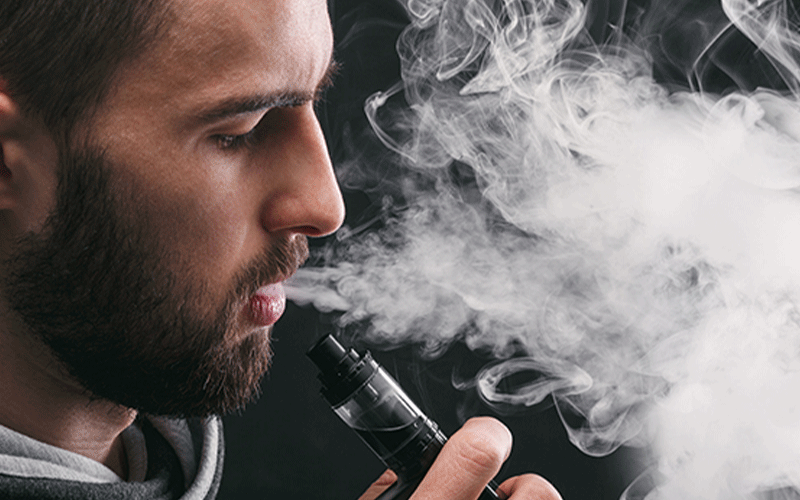Vaping Related Lung Injuries: Jan. 31 Update
What to know about the outbreak of vaping-linked illness and deaths
Since June 2019, there has been a multistate outbreak of lung disease in the U.S. associated with e-cigarette product use. The Centers for Disease Control and Prevention (CDC), the U.S. Food and Drug Administration (FDA), state and local health departments and other clinical and public health partners are investigating these cases of e-cigarette, or vaping, product use associated lung injury (EVALI).
New
- RSNA is publishing EVALI-related studies and commentaries in Radiology and Radiology: Cardiothoracic Imaging in a Special Focus section.
CDC Information
Patients with EVALI may have similar symptoms to flu or other respiratory illness – and can have both EVALI and respiratory infection – so diagnosing and managing these patients can be challenging. To help providers with evaluating and managing patients with EVALI, particularly during flu season when respiratory illnesses are more common, CDC has updated clinical guidance for diagnosis & management of EVALI patients during flu season.
CDC released two reports on EVALI, confirming that most EVALI patients report using tetrahydrocannabinol (THC)-containing products and that new EVALI cases have continued to decline with time. The two reports appear in CDC’s Morbidity & Mortality Weekly Report (MMWR).
- 82% of hospitalized patients with data on substance use reported using THC-containing products; 33% reported exclusive use of THC-containing products (as of January 14, 2020).
- 50% of EVALI patients who reported using THC-containing products provided data on product source (as of January 7, 2020).
- 16% reported acquiring products only from commercial sources (recreational and/or medical dispensaries, vape or smoke shops, stores, and pop-up shops).
- 78% reported acquiring products only from informal sources (family/friends, dealers, online, or other sources).
- 6% reported acquiring products from both commercial and informal sources.
- CDC and FDA recommend that people not use THC-containing e-cigarette, or vaping, products, particularly from informal sources like friends, family, or in-person or online dealers.
The CDC provides Recommendations for Clinicians, which encourage physicians to report possible cases of e-cigarette or vaping-associated pulmonary disease to their local or state health department.
RSNA Resources
- In the video below, presenters at an RSNA 2019 Special Interest Session, E-cigarette/ Vaping-associated Lung Injury (EVALI), speak on the issue.
- To raise awareness among radiologists and other medical professionals on how to identify EVALI, Radiology: Cardiothoracic Imaging has published a special report on lung injury resulting from the use of e-cigarettes or vaping. In the report, authors Suhny Abbara, MD, and Fernando Uliana Kay, MD, PhD, from the Department of Radiology at UT Southwestern Medical Center in Dallas, review recent cases of e-cigarette–associated lung injury from the literature
- In the video below, Jeffrey S. Klein, MD, RSNA Board member and thoracic radiologist at the University of Vermont, explains what radiologists should know to date.
According to the CDC:
- There are 2,711 cases of EVALI reported from 50 states, the District of Columbia and two U.S. territories (Puerto Rico and U.S. Virgin Islands) as of Jan. 21.
- 60 deaths have been reported from 27 states and the District of Columbia.
- All reported cases have a history of e-cigarette product use or vaping.
- Most patients have reported a history of using e-cigarette products containing THC. Many patients have reported using tetrahydrocannabinol (THC) and nicotine. Some have reported the use of e-cigarette products containing only nicotine.
For More Information
The CDC website provides additional information about e-cigarette use and associated illnesses.
